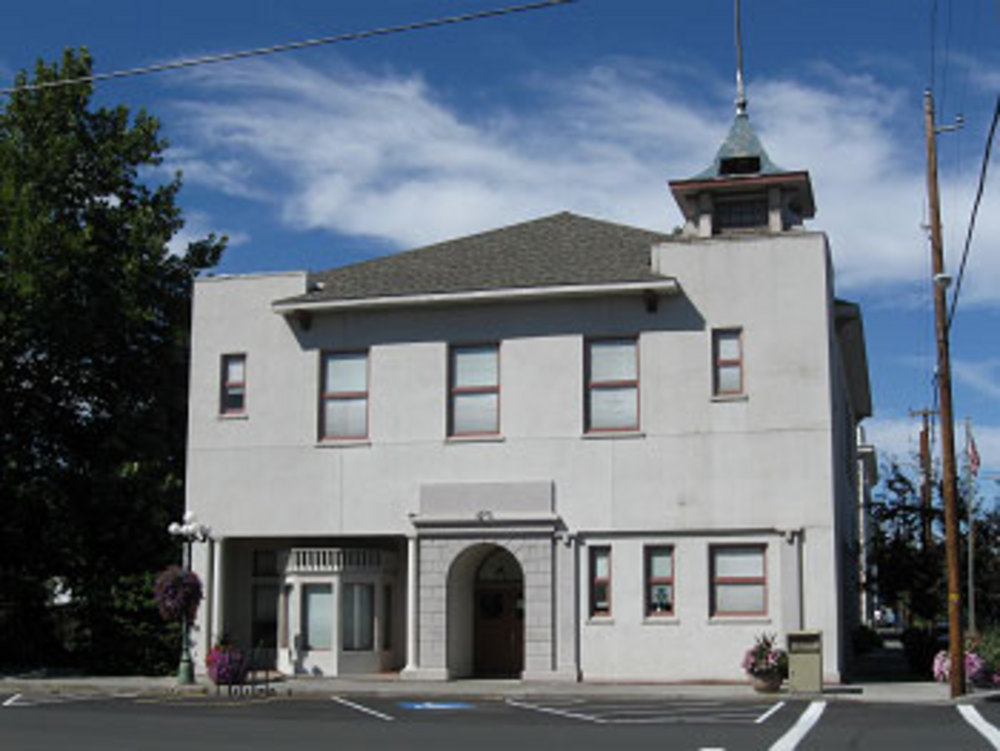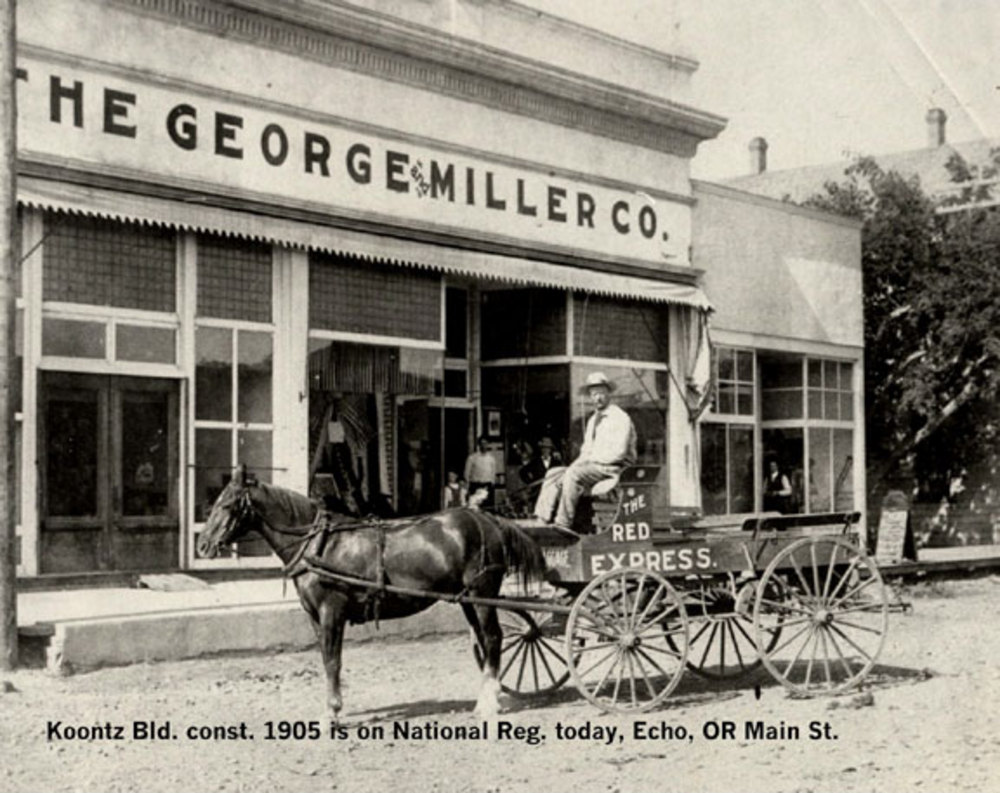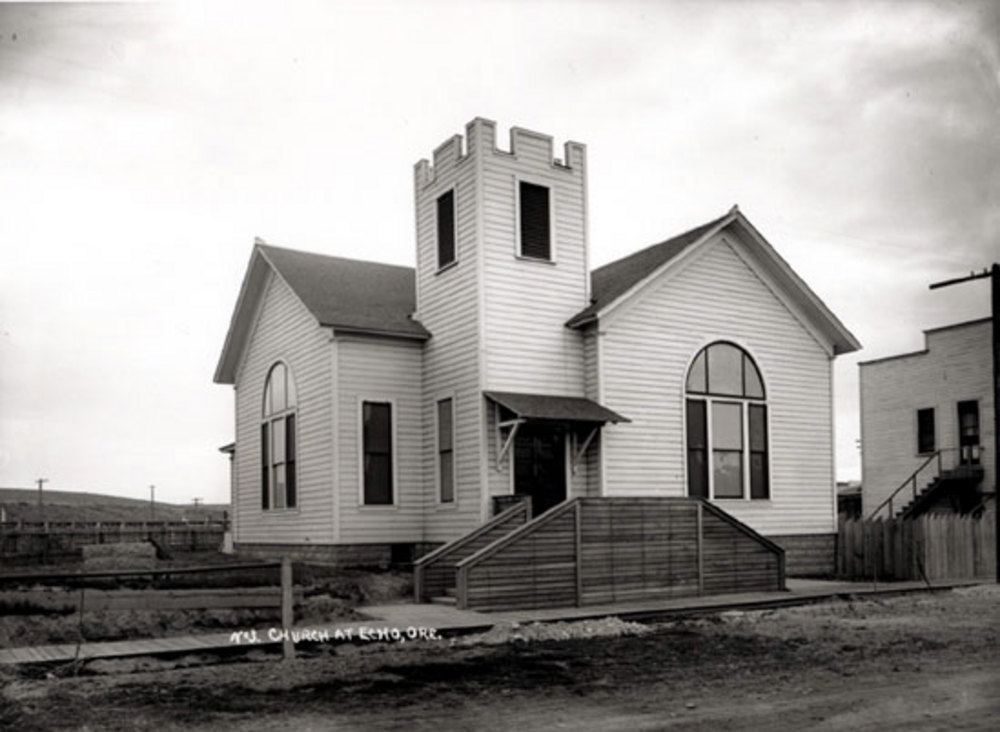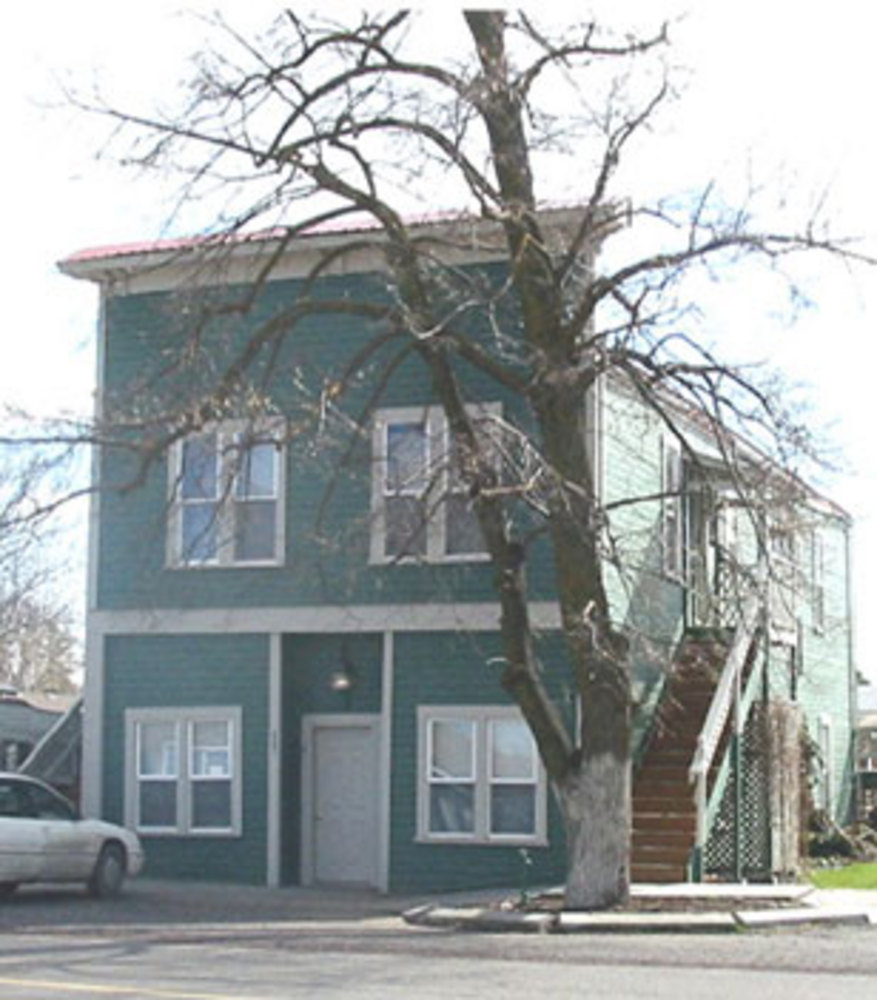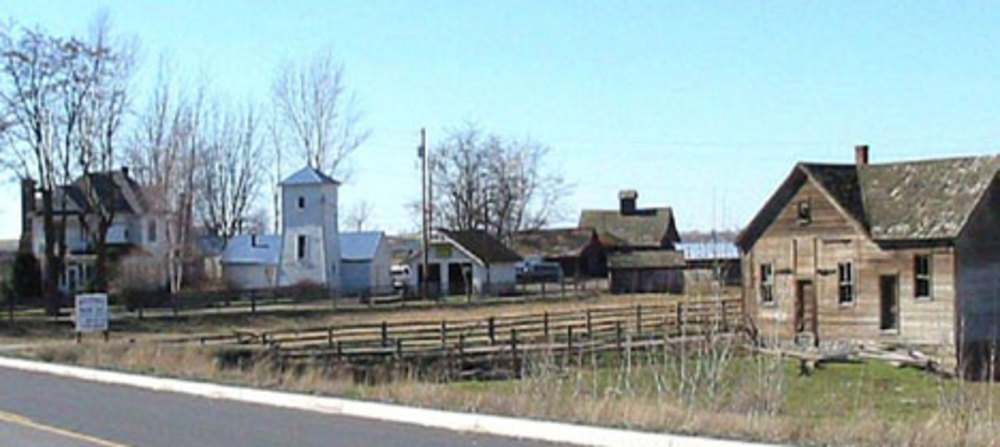The town of Echo, in Umatilla County, is located at the historic crossroads of Indian trails and the Oregon Trail on the Umatilla River. In the early 1840s, some emigrants diverged from the main route of the Oregon Trail near present-day Pendleton and traveled past this site as they followed the Umatilla River to the Columbia River. In 1847, an emigrant party crossed the Umatilla here and opened the Columbia Plateau Route of the Oregon Trail, which became the primary route of the trail. The crossing was known as the Lower Crossing (the Upper Crossing being at the site of Pendleton).
In 1851, Anson Dart, the Superintendent of Indian Affairs for Oregon, built the Utilla Indian Agency for the Cayuse, Umatilla, and Walla Walla tribes on the west side of the river, across from the future site of Echo. Indians destroyed the agency in November 1855 during the Yakama Indian War, and the Oregon Mounted Volunteers immediately built Fort Henrietta, a 100 ft. square cottonwood stockade, on the site. It was abandoned a year later.
Settlers began moving into the area about 1860, and in 1861 a ferry was established across the Umatilla River at the emigrant crossing. The ferry was operated until the county later built a bridge. In 1880, James H. Koontz moved to the area from Umatilla Landing, on the Columbia River at present Umatilla, and platted the town, which he named for his three-year-old daughter Echo. The town was incorporated in 1904. The population of Echo was 650 at the 2000 census and estimated at 632 in 2020.
Echo is the center of a prosperous agricultural area. The Oregon Railway and Navigation Company built a railroad through Echo in 1883, and in the early 1900s, the town was a major shipping point for grain, wool, sheep, and cattle. Today, cattle ranching has replaced sheep; the major area crops are wheat, alfalfa hay, corn, and a variety of seeds.
While Echo is no longer a commercial and shipping center, and modern highways have bypassed the town, the community preserves and promotes its historic features. Ten buildings are listed on the National Register of Historic Places, and several other buildings have local historic significance. There are also historic reminders of the Oregon Trail, such as the marked grave of David R. Koontz (no relation to the town founder), an emigrant who died and was buried alongside the trail in 1852.
In the 1980s the city applied for recognition as a Tree City USA to promote its natural environment. Echo has been awarded Tree City USA status since 1989 and also has received Urban Forestry awards from the Oregon Department of Forestry. The Oregon Trail Arboretum was established in 1993 as part of the community's focus on forestry activities. Echo received a bronze certificate at the 2007 International Awards for Liveable Communities (LivCom) for cities with a population under 20,000. Echo was the only finalist from the United States in this category.
-
![]()
Echo City Hall, built in 1916.
Courtesy City of Echo
-
![]()
Koontz Building, Echo, built in in 1904/1905.
Courtesy City of Echo
-
![]()
Echo Methodist-Episcopal Church, built in 1886.
Courtesy City of Echo
-
![]()
Edwards Building, Echo, built in the 1860s.
Courtesy City of Echo
-
![]()
Echo Bank Building, built in 1920, became a museum in 1980.
Courtesy City of Echo
-
![]()
Cunha Farmstead, near Echo.
Courtesy City of Echo
-
![]()
Echo Cemetery District.
Courtesy City of Echo
Related Entries
Map This on the Oregon History WayFinder
The Oregon History Wayfinder is an interactive map that identifies significant places, people, and events in Oregon history.
Further Reading
"Historic Echo Receives International Livable City Award." Pioneer Trails (Umatilla County Historical Society) 32, no. 1 (Spring 2008): 11-15.
"History of Echo." City of Echo.
Tolar, Bennie Lee Middleton. "Echoes From the Past." Echo, Ore.: typescript, 1979.

